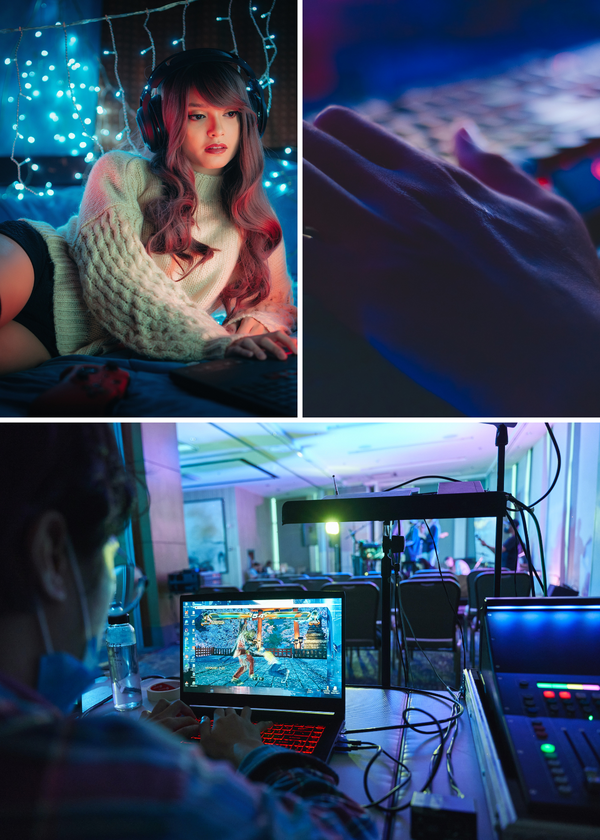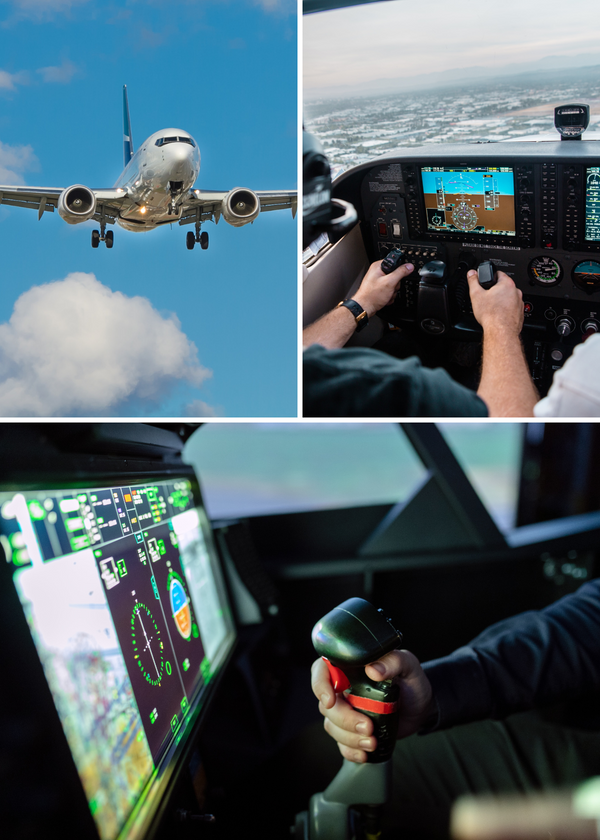Artificial Intelligence (AI) has become an integral part of our daily lives, from simple everyday tasks to complex problem-solving scenarios. As AI technology continues to evolve, the demand for portable and powerful computing devices that can handle AI tasks is on the rise.
This comprehensive guide is designed to help you navigate the world of laptops for AI, ensuring you make an informed decision when selecting the perfect machine for your needs.
Understanding AI and Laptop Requirements
When diving into the realm of AI, it's crucial to understand that not all laptops are created equal. AI and machine learning professionals require laptops that can handle deep learning tasks, run complex algorithms, and process large datasets efficiently. A powerful CPU, such as the Intel Core i7 or i9, or the AMD Ryzen 7 or 9, is essential for running these demanding tasks. Additionally, a premium laptop with a dedicated graphics card, like the NVIDIA GeForce RTX series, is beneficial for tasks involving computer vision and neural networks.
The Importance of GPU in AI Laptops
For AI-related tasks, the GPU is just as important as the CPU. A laptop with multiple GPUs or one with a high-performance graphics card can significantly accelerate the processing of machine learning algorithms. The NVIDIA GeForce RTX series, with its tensor cores and ray tracing capabilities, is particularly adept at handling AI tasks. These GPUs are not only found in gaming laptops but are also a staple in laptops designed for AI and deep learning.
FYI — Techi-Becky Reviews may collect a share of sales or other compensation from being an Amazon Associate, we earn commissions from qualifying purchases from links on this page if you decide to buy something (that's how we stay in business) Thanks for reading!
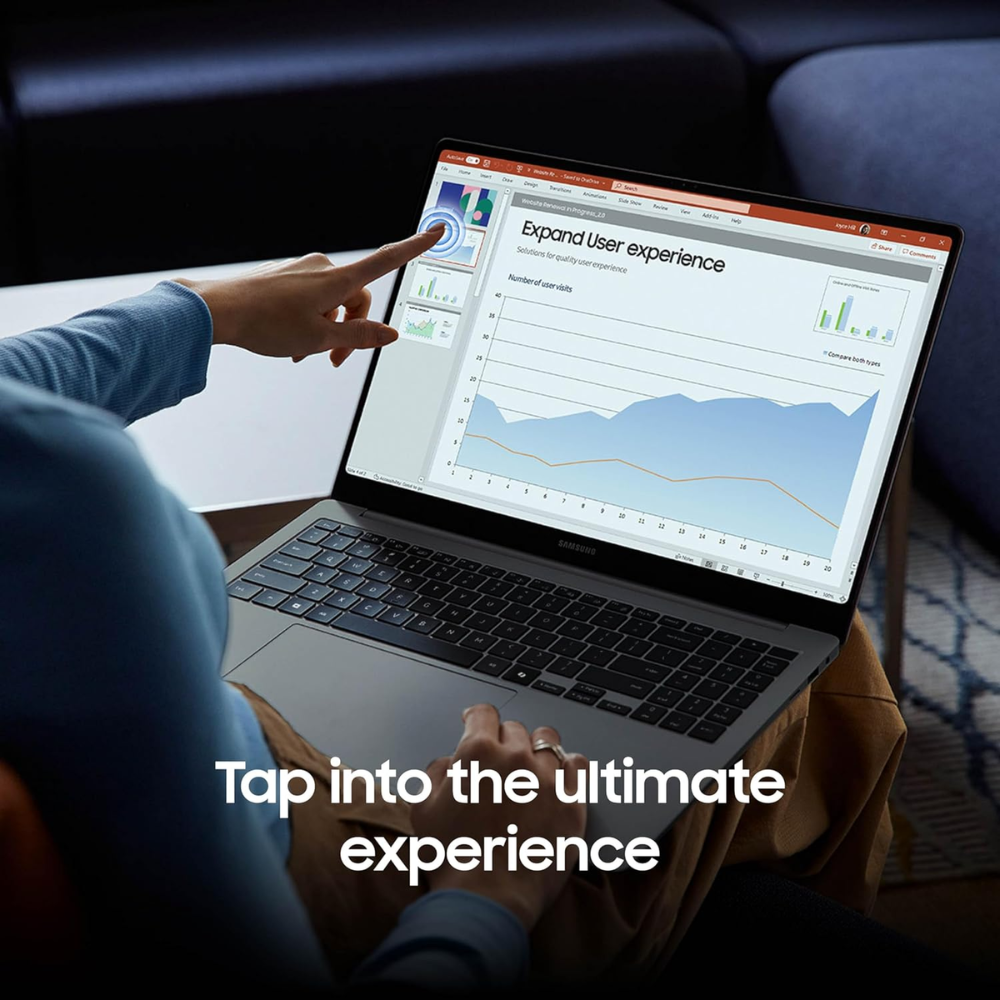
SAMSUNG 14" Galaxy Book4 Pro Laptop PC Computer
Experience peak productivity with the Intel Core Ultra 7 processor 155H, enhanced with AI Intel ARC Graphics. Carry this power with you effortlessly, thanks to the ultralight and amazingly slim design of our laptops. Whether you choose the 14" or 16" model, you'll enjoy a stunning Dynamic AMOLED 2X touchscreen for work and play. With a long-lasting battery and advanced Galaxy Book security, you can confidently tackle your day, knowing your device has you covered.
RAM and Storage Space: Key for AI Tasks
When working with AI, having ample RAM is non-negotiable. A minimum of 16GB is recommended, but 32GB or more is ideal for handling large datasets and running multiple applications simultaneously. As for storage, a solid state drive (SSD) is preferred over a traditional hard drive for its faster read and write speeds. Laptops like the MacBook Pro and HP Spectre x360 often come with high-speed SSD storage, which is crucial for AI and ML tasks.
Connectivity and Battery Life
A laptop for AI isn't just about raw power; it also needs to have a long battery life and robust connectivity options. AI professionals often work on the go, so a portable laptop with hours of battery life is a must. Additionally, features like Thunderbolt 3 or 4 ports can facilitate fast data transfer, which is essential when working with large datasets.
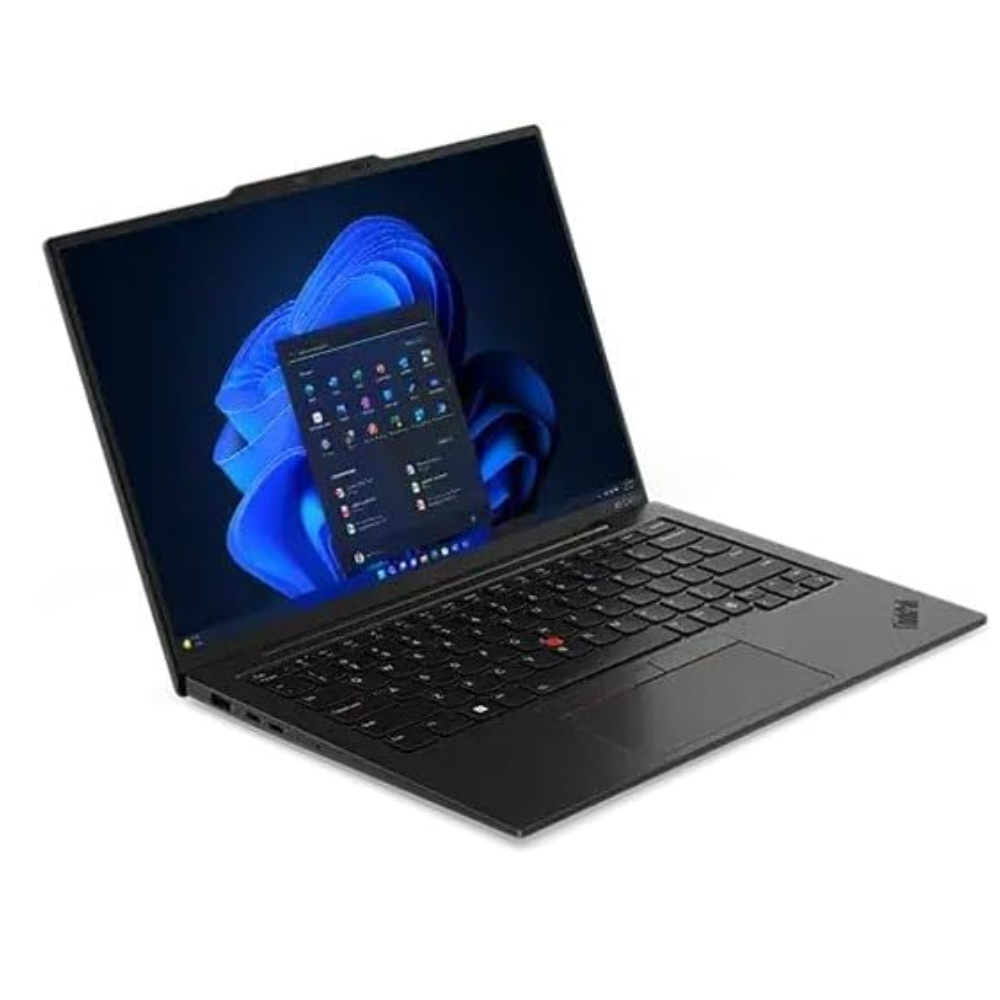
NewestLenovo ThinkPad X1 Carbon Gen 12 Laptop 14 inch 2.8K OLED
Processor: Intel Core Ultra 7 155H Processor (E-cores up to 3.80 GHz P-cores up to 4.80 GHz)
Display: 14" 2.8K (2880 x 1800), OLED, Anti-Glare, Anti-Reflection, Anti-Smudge, Non-Touch, HDR 500, 100% DCI-P3, 400 nits, 120Hz, Low Blue Light
Memory: 32 GB LPDDR5X-6400MHz (Soldered)
Storage: 1 TB SSD M.2 2280 PCIe Gen4 Performance TLC Opal
Graphics Card: Integrated Intel Arc Graphics
Wireless: WiFi 6E AX211 802.11AX (2 x 2), Bluetooth 5.3
Ports/Slots: 2 x USB-A 3.2 Gen 1 (5Gbps), 2 x USB-C Thunderbolt 4 (40Gbps), Headphones/mic combo, HDMI 2.1 (supports resolution up to 4K@60Hz)
Operating System: Windows 11 Home 64
Support: 1-Week AimCare Support
The Role of Operating Systems in AI Laptops
The operating system (OS) plays a pivotal role in the performance of AI laptops. While Windows is widely used and supports a plethora of AI software, some professionals prefer macOS for its stability and seamless integration with Apple's hardware. On the other hand, Linux is often favored by developers for its customizability and open-source nature. Chrome OS, found in laptops like the Google Pixelbook, is also becoming more capable, especially with the advent of cloud-based AI applications.
Processor Powerhouses for AI: Intel Core Ultra and Beyond
When considering laptops for AI-related tasks, the processor is the heart of the machine. The latest Intel Core Ultra series is designed to deliver the power and efficiency required for complex computations. These processors are adept at handling demanding AI algorithms, including natural language processing and generative AI models. With their advanced architecture, they ensure that AI applications run smoothly, allowing users to work on AI projects without experiencing significant lag or overheating issues.
Beyond Intel's offerings, other laptops in the market come equipped with processors that are optimized for AI workloads. For instance, some models feature a neural processing unit (NPU) dedicated to accelerating AI tasks. This specialized hardware works alongside the main CPU to enhance the laptop's ability to process AI algorithms efficiently.
Whether you're working on data analysis or developing AI models, choosing a laptop with a robust processor like the 10th Gen Intel Core i series or higher is crucial for optimal performance. Harnessing AI for Creative Endeavors In the realm of artificial intelligence, the focus isn't solely on crunching numbers or data analysis. AI-related tasks are increasingly becoming integral to creative fields such as graphic design, video editing, and music production.
Laptops that cater to these AI-driven applications need to balance raw power with nuanced capabilities like color accuracy and sound fidelity. For those who like to get hands-on with creative AI tools, a laptop with a high-quality display and dedicated graphics card is a must. It's not just about the horsepower under the hood; it's about the precision and quality of the output.
Moreover, the PC market is witnessing a surge in laptops that are optimized for creative professionals who leverage AI. These machines often come with stylus support, touchscreens, and software enhancements that streamline the creative process.
For instance, NVIDIA Studio laptops are designed specifically for creators, equipped with GPUs that accelerate AI algorithms, making tasks like image upscaling or style transfer not just possible, but fluid and responsive. This integration of AI into the creative process is transforming how artists and designers approach their work, offering new tools and possibilities.
AI and the Evolution of Mobile Computing As AI continues to evolve, so does the landscape of mobile computing. Laptops are no longer just about being able to perform AI-related tasks; they're about doing so anytime, anywhere.
This shift has led to the development of laptops that not only have the power to handle complex AI computations but are also designed with portability in mind. For professionals and tech enthusiasts who need to take their work on the go, finding a PC that strikes the right balance between performance and portability is key. Features like lightweight designs, long-lasting batteries, and robust build quality are becoming as important as the internal specs.
The hands-on nature of AI work often requires a laptop that can serve as a mobile workstation, capable of handling tasks from machine learning model training to real-time data analysis.
To meet these demands, manufacturers are pushing the envelope with innovations like ultra-efficient processors, advanced cooling systems, and AI-optimized hardware. For example, laptops with AI-enhanced noise cancellation can provide a better user experience in public spaces, allowing for uninterrupted focus.
As AI becomes more pervasive in our daily tasks, expect to see laptops that are not just powerful, but also smarter, more intuitive, and more adaptable to the needs of the modern user.
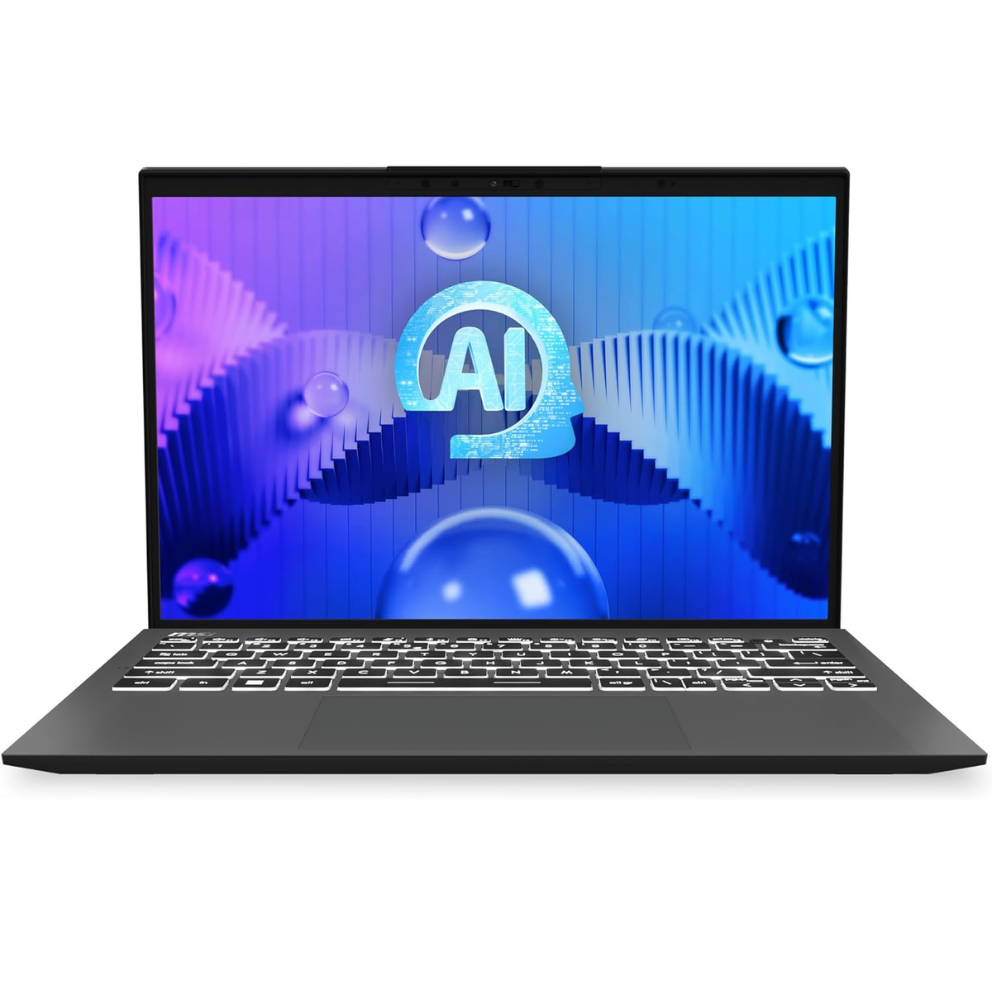
MSI Prestige 13 AI Evo Laptop: Intel Ultra 7-155H, 13.3"
I-Powered Performance: Maximize the potential of the latest Intel Core Ultra 7 processor for seamless handling of demanding tasks. Experience unparalleled productivity with exceptional performance on the move.
Power Your Passion: Windows 11 Pro offers intuitive navigation and enhanced performance, ideal for both personal and professional use.
4K Display: Enjoy breathtaking visuals on the 13.3" UHD OLED display, which delivers stunning contrasts and vibrant colors, bringing your multimedia content to life.
Wireless Innovation: With the latest Wi-Fi 7 technology, stream high-quality videos and download large files faster than ever before. Accomplish your tasks at incredible speeds.
Cooling Systems: A Necessity for AI-Intensive Workloads
When diving into AI-related tasks, the significance of an efficient cooling system can't be overstated. AI algorithms and machine learning processes can push a laptop's hardware to its limits, generating substantial heat. A robust cooling system ensures that the laptop maintains optimal performance without succumbing to thermal throttling. This is particularly crucial during long training sessions where consistent performance is key.
Moreover, a good cooling system contributes to the longevity of the laptop. When you're hands-on with complex AI models, the last thing you want is for your hardware to fail due to overheating. Manufacturers are now incorporating advanced cooling technologies such as vapor chamber cooling and enhanced heat pipes, which are worth considering when selecting a laptop for AI tasks.
AI-Enhanced Cooling Technologies
When diving into AI-related tasks, the heat generated by laptops can be a significant concern. AI algorithms demand substantial computational power, which in turn produces a lot of heat. Manufacturers are now incorporating AI-enhanced cooling technologies to tackle this issue. These smart cooling systems can predict the heat generation patterns and adjust the cooling mechanisms accordingly. For instance, some laptops come equipped with additional heat pipes and intelligent fan controls that work in tandem to dissipate heat more efficiently during intense AI workloads.
Moreover, these advanced cooling solutions are not just about keeping the temperature down; they also contribute to the overall performance and longevity of the laptop. By maintaining optimal temperatures, they ensure that the processors are running at their best without throttling. This is particularly crucial for tech enthusiasts and professionals who need their machines to perform hands-on AI tasks without interruption. As AI continues to evolve, we can expect even more innovative cooling solutions to emerge, keeping your AI endeavors cool under pressure.
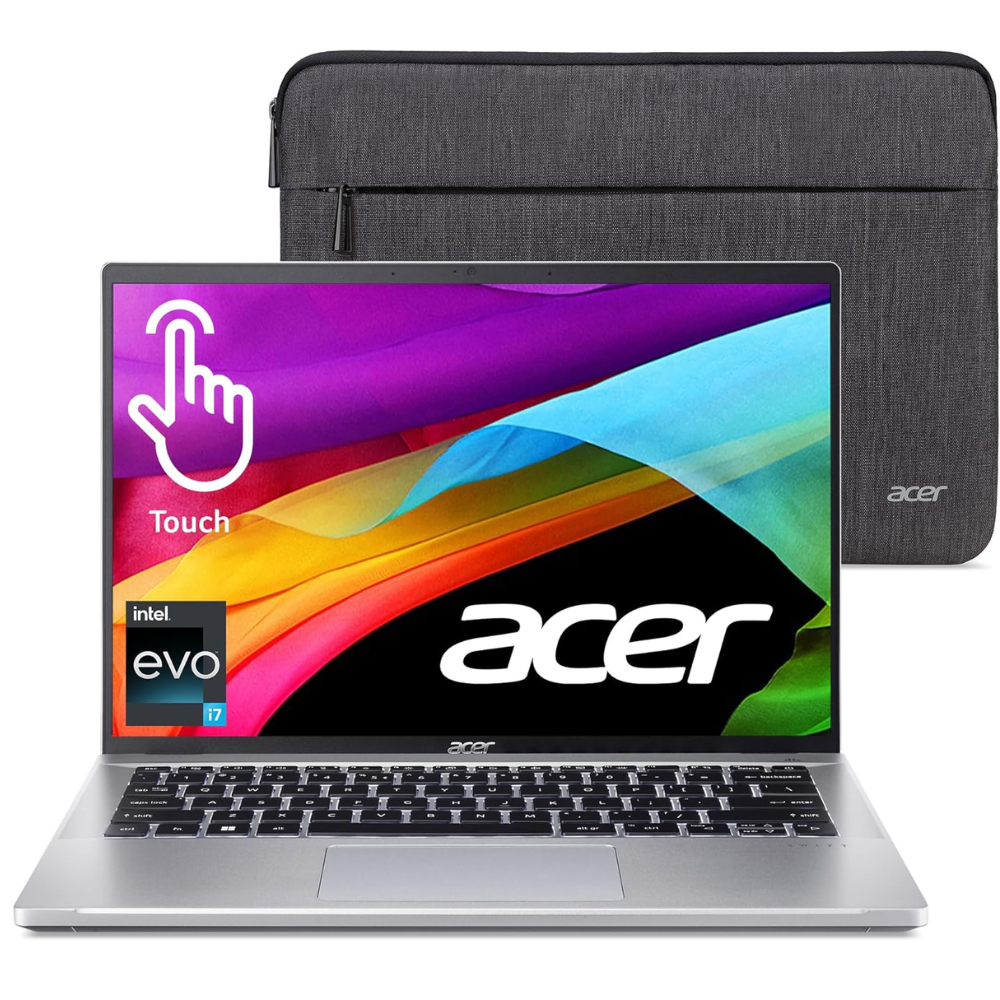
Acer Swift Go Intel Evo Thin & Light Premium Laptop 14"
Next-Gen Power: Powered by the 13th Gen Intel Core i7 processor, this laptop delivers unparalleled performance. Seamlessly run multiple complex programs, edit creative projects effortlessly, and enjoy immersive streaming without any lag.
Visual Delight: Immerse yourself in the stunning visuals of the Swift Go's 14" 1920 x 1200 IPS display, offering precise color accuracy, deep blacks, and crystal-clear image quality. Opt for the touchscreen for a more interactive experience.
Impressive Specifications: Enjoy 16GB Onboard LPDDR5 Memory, 512GB PCIe Gen 4 SSD, a microSD Card Reader, and Killer Wireless Wi-Fi 6E AX1675 with 2x2 MU-MIMO Technology. Bluetooth 5.1 or above ensures seamless connectivity.
Enhanced Security: The power button features a Fingerprint Reader with Computer Protection and Windows Hello Certification, ensuring your Acer Swift Go remains secure.
Portability at Its Best: Weighing just 2.76 pounds and measuring 0.59" thin, the Swift Go is incredibly portable. Its eco-conscious OceanGlass touchpad adds to its appeal, making it your perfect on-the-go companion.
Crystal-Clear Video Calls: The 1440p QHD camera with Acer’s TNR (Temporal Noise Reduction) technology delivers exceptional image quality, even in low-light conditions. Acer PurifiedVoice with AI Noise Reduction ensures clear voice calls.
The Evolution of AI-Ready Displays
For professionals and enthusiasts working hands-on with AI-related tasks, the quality of the laptop display is an often overlooked yet critical factor. AI development can involve analyzing large datasets, working with complex visualizations, and even video processing, all of which demand a high-quality display. The evolution of AI-ready displays has brought features like higher resolutions, better color accuracy, and faster refresh rates, which are essential for tasks such as image recognition and video analysis.
Furthermore, some manufacturers are now integrating AI-driven adaptive brightness and color calibration features that adjust the display settings in real-time for optimal viewing experience. This not only enhances the visual accuracy for AI tasks but also reduces eye strain during long coding sessions. Whether you're training a neural network or fine-tuning a computer vision model, an AI-ready display can make a significant difference in the efficiency and comfort of your work. As AI applications become more visually intensive, expect to see displays that are not just about looks but are smart enough to adapt to your AI-driven workflow.
The Emergence of AI-Optimized Chipsets
The landscape of processors is rapidly evolving with the emergence of AI-optimized chipsets designed to accelerate AI-related tasks. These specialized processors are engineered to handle the unique demands of machine learning and deep learning algorithms more efficiently than traditional CPUs. For tech enthusiasts and professionals who are hands-on with AI, these chipsets can significantly reduce computation times and improve the overall workflow.
Take, for example, the NVIDIA's Tensor Cores, which are specifically tailored for AI computations. These cores are integrated into their GPUs and provide massive boosts in processing power for AI applications. Similarly, Intel's Nervana Neural Network Processors are another leap forward, offering purpose-built architecture for deep learning. When choosing a laptop for AI, it's worth exploring models that incorporate these AI-optimized chipsets to stay ahead in the field.
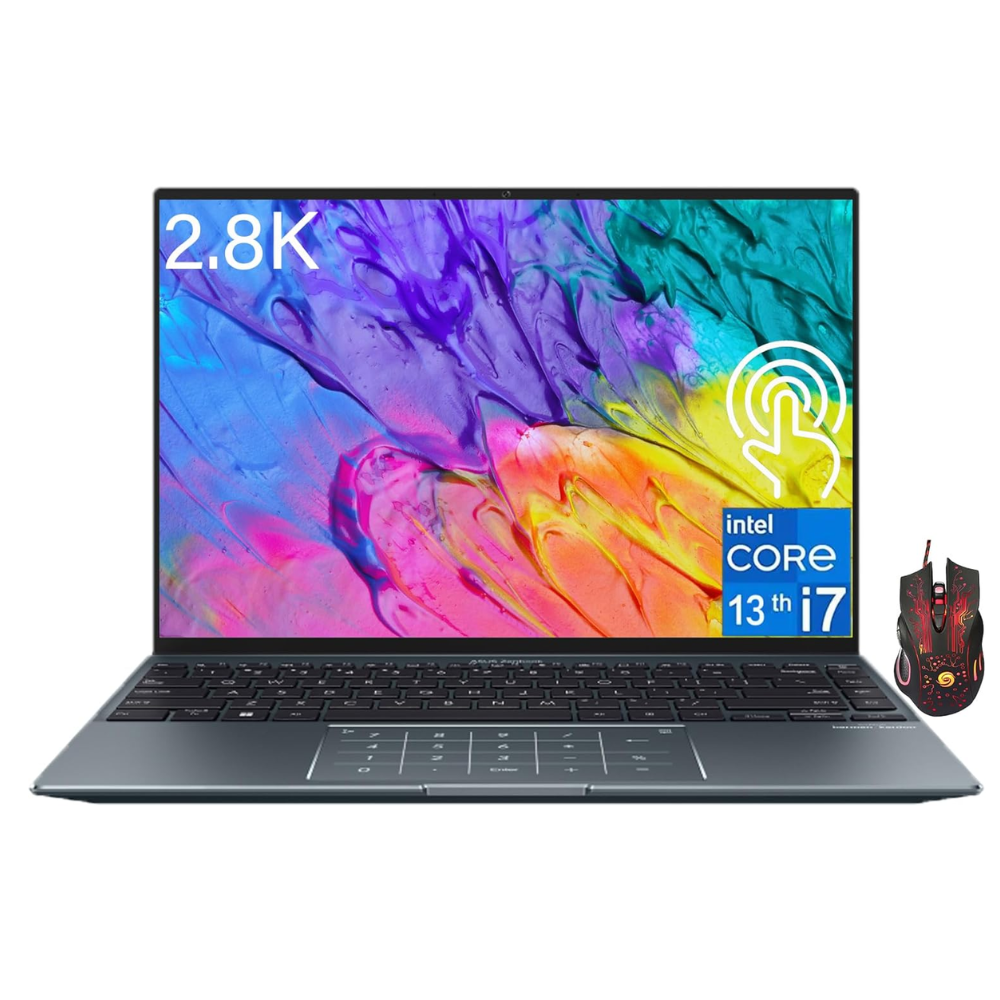
ASUS Zenbook 14X Business Laptop - 14.5" 2.8K OLED Touchscreen
Featuring a 14.5-inch 2.8K touchscreen display, this laptop provides vivid colors, sharp details, and precise touch input for an immersive viewing experience. The integrated Intel Iris Xe Graphics chipset ensures crisp visuals and smooth graphics performance, making it suitable for casual gaming, multimedia editing, and content creation.
Experience ultimate portability with the ASUS ZenBook, meticulously designed to be thin, light, and ultra-portable. Its sleek design combines with powerful performance, offering seamless mobility for your dynamic lifestyle. With ample battery capacity, enjoy extended usage without compromising on-the-go convenience.
Stay connected effortlessly with the built-in FHD IR webcam and microphone. ASUS 3D Noise Reduction and AI noise-canceling technology deliver clear audio and video quality. Connectivity options include HDMI, USB-C, and USB 3.2, ensuring easy and seamless data transfer.
Whether you're a professional on the move, a content creator, or a student, the ASUS ZenBook adapts to your needs. Its powerful features and stunning display make it an ideal choice for a wide range of applications, from content creation to productivity tasks, ensuring you're prepared for any scenario life presents.
The Gaming Laptop Advantage in AI
Gaming laptops are not just for gamers anymore; they have become a popular choice for tech enthusiasts and professionals working on AI. The reason is simple: gaming laptops like the HP Spectre x series and Lenovo ThinkPad X models often come with high-end GPUs, ample RAM, and fast processors that are also ideal for AI-related tasks. These laptops are built to handle the intense graphics of modern games, which translates well into the capability to manage the heavy computational loads of AI applications.
Moreover, gaming laptops usually feature other benefits such as a backlit keyboard, which is great for those late-night coding sessions, and enhanced cooling systems to keep the laptop performing at its peak during extended use. While they might be bulkier than other laptops, the trade-off is a machine that's ready for anything AI can throw at it. With a gaming laptop, you're not just getting a device for play; you're investing in a versatile tool that can take your AI projects to the next level.
AI Software Compatibility
The laptop you choose must be compatible with the AI software you plan to use. Popular programs like Adobe Premiere Pro for video editing, and software frameworks for machine learning such as TensorFlow and PyTorch, have specific system requirements. Ensure that the laptop meets these requirements to avoid any performance issues.
The Best Laptops for AI on the Market
Now that we've covered what to look for in a laptop for AI tasks, let's explore some of the top contenders. The MacBook Pro, with its M1 chip, offers exceptional performance for AI tasks. The Lenovo ThinkPad X1 series is another excellent choice, known for its robust build and powerful CPU options. For those who prefer Windows, the Microsoft Surface series, with Windows Studio Effects and Windows Copilot, is designed to enhance productivity in AI-related workflows.
Customization and Upgradability
Choosing a laptop that allows for customization and upgradability can be a wise investment. As AI technology advances, the ability to upgrade your RAM, storage, or even the GPU can extend the lifespan of your laptop and ensure it keeps pace with new developments in AI.
AI-Specific Features to Look For
Some laptops come with AI-specific features that can enhance your workflow. For instance, the NVIDIA GeForce RTX series offers AI-enhanced graphics and real-time ray tracing, which are beneficial for tasks involving 3D modeling and rendering. Features like automatic framing and lighting effects in video calls, powered by AI technology, are also becoming more common in high-end laptops.
Balancing Performance with Portability
While performance is key, it's also important to find a balance with portability. A laptop that's too heavy or bulky may not be ideal for those who need to work from different locations. The HP Spectre x360 and Dell XPS series are examples of laptops that offer a good balance of high performance and portability.
Price Considerations
Investing in a laptop for AI can be costly, but it's important to consider the long-term value. A more expensive, powerful laptop may seem like a hefty upfront cost, but it could save you time and money in the long run by allowing you to work more efficiently and tackle more advanced AI projects.
FAQs
Q: What makes a laptop suitable for AI and machine learning tasks?
A: A laptop suitable for AI and machine learning tasks should have a powerful CPU (like an Intel Core i7/i9 or AMD Ryzen 7/9), a high-performance GPU (such as NVIDIA GeForce RTX), ample RAM (16GB or more), and fast SSD storage. It should also have a long battery life and be capable of running AI software efficiently.
Q: Can gaming laptops be used for AI tasks?
A: Yes, gaming laptops can be used for AI tasks as they often come equipped with powerful CPUs and GPUs, which are essential for running complex algorithms and processing large datasets. However, ensure the laptop also has sufficient RAM and storage space for your specific AI needs.
Q: Are there any specific brands or models that are recommended for AI professionals?
A: Brands like Apple, Lenovo, HP, and Microsoft offer laptops that are well-suited for AI professionals. Models such as the MacBook Pro, Lenovo ThinkPad X1, HP Spectre x360, and Microsoft Surface series are often recommended due to their powerful hardware and AI-friendly features.
Summary
Choosing the right laptop for AI involves a careful consideration of hardware specifications, software compatibility, and personal workflow requirements. A powerful CPU, high-performance GPU, ample RAM, and fast SSD storage are non-negotiable for AI tasks.
Additionally, long battery life, a comfortable keyboard, and a high-resolution display can significantly enhance your work experience. Whether you opt for a MacBook Pro, Lenovo ThinkPad X1, or another high-end laptop, ensure it meets the demands of your AI and machine learning projects.





